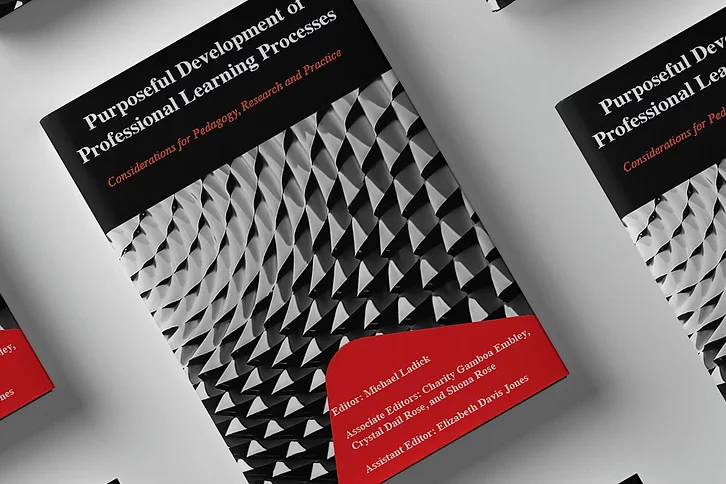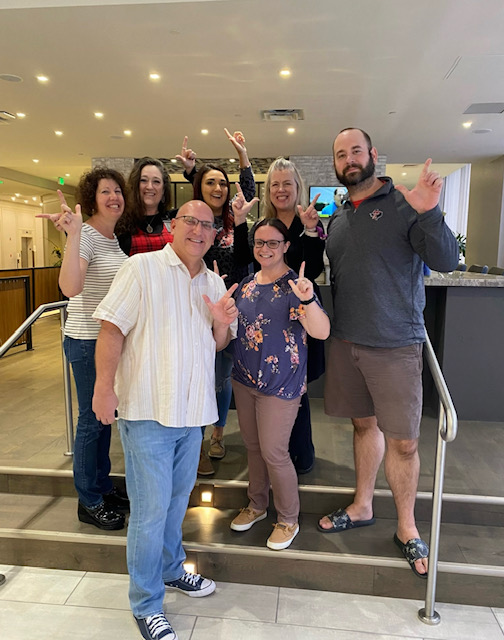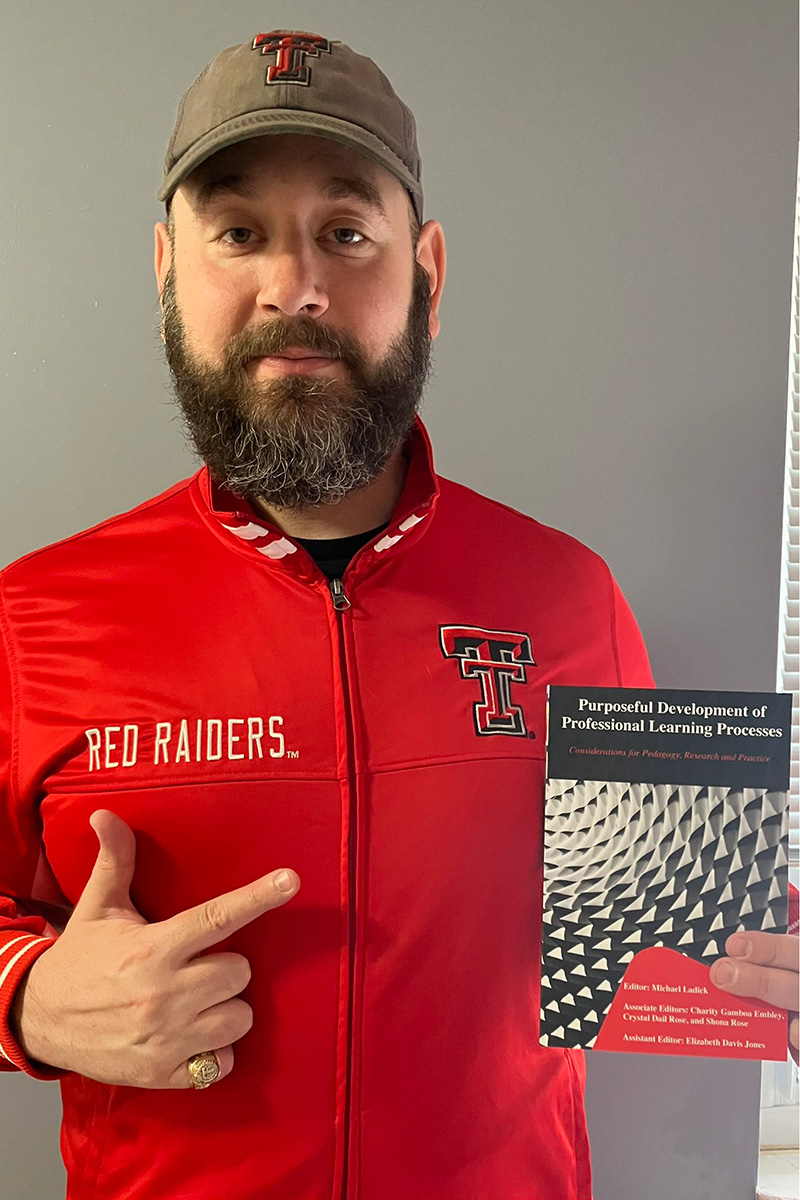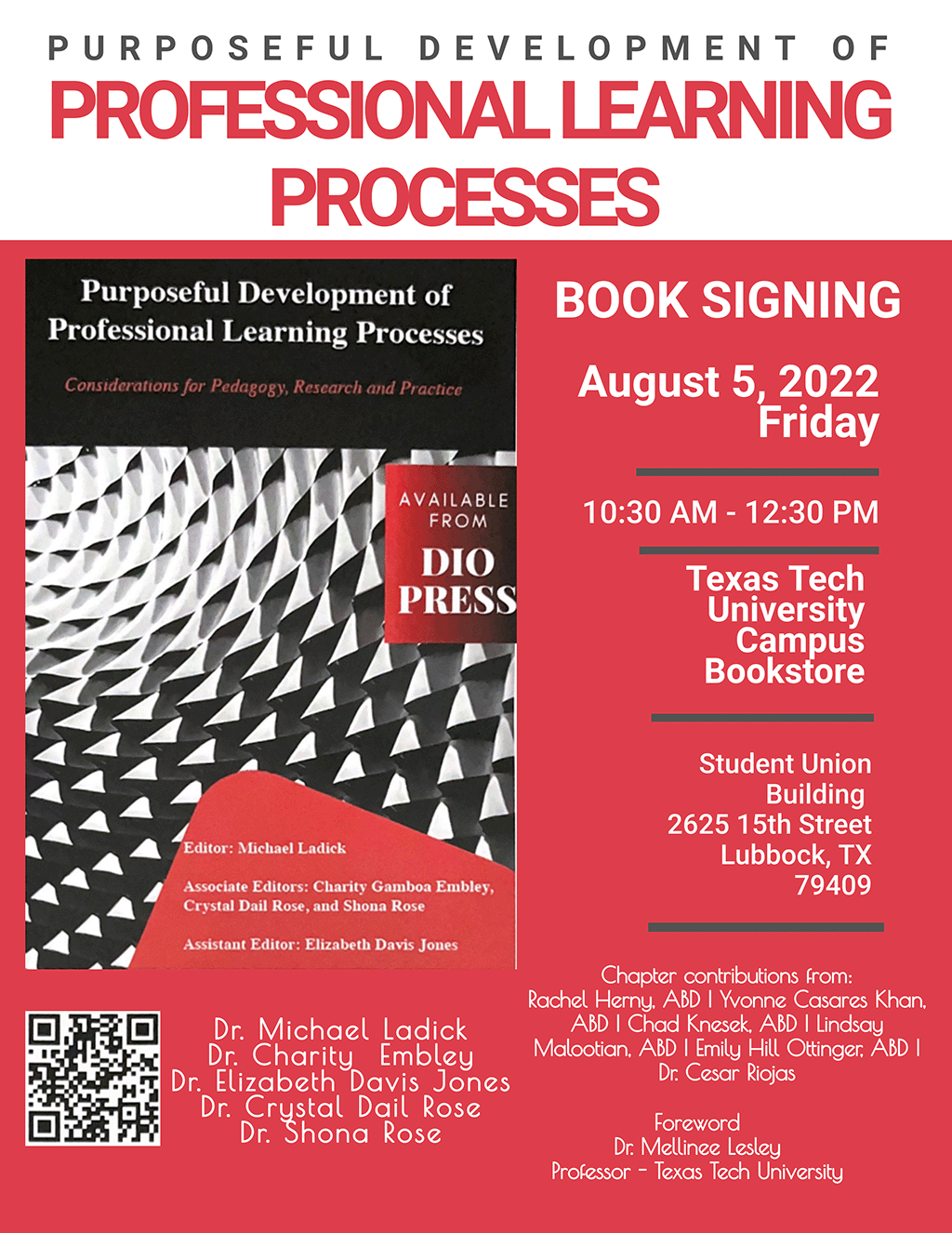
Authors are hosting a book signing Aug. 5 at the Texas Tech University campus bookstore.
For teachers, the announcement of “professional development day” is often met with groans and eye rolls. Many cringe at the thought of another one-day seminar spent trying not to doze off while listening to a speaker. And if there's no follow up, why even bother?
A group of students and alumni from the Language, Diversity and Literacy Studies (LDLS) doctoral program at Texas Tech University argues in a new book that educational professional development doesn't have to be this way.
In “Purposeful Development of Professional Learning Processes: Considerations for Pedagogy, Research and Practice,” published in May by DIO Press, the authors weave personal stories with research, analyses and theoretical discoveries in an attempt to move beyond drive-by, one-day, one-size-fits-all professional development seminars and instead encourage a journey of continual collaboration, feedback, reflection and self-discovery.

This new, deeper type of professional development, the authors pointedly say, is called “professional learning.”
“We think that professional learning is not just bringing teachers into a group, doing a workshop and then being done with it,” said Associate Editor Charity Embley, who will join her fellow contributors at a book signing Friday (Aug. 5) at the Texas Tech University Campus Store. “Professional learning is a lot different. Basically, it's empowering yourself.”
Embley, who graduated in 2019 and is now an assistant professor of education at Odessa College, contributed a chapter about teaching pre-service teachers to have a deeper understanding of multiculturalism. She uses her experience – and frustrations – as an educator in a teacher preparation program to guide the chapter.
“It's not just about having Asian American and Pacific Islander Heritage Month in May and then it's over,” she said. “You can teach multicultural education every day. You can integrate that into everyday curriculum.”
The eight-chapter book provides similar insights for a variety of topics, including reflective practices, content area literacies, English language learners, writing feedback, parent-community engagement, instructional coaching and struggling readers. Everything is grounded in theoretical frameworks, but also brought to life by the lived experience of the authors, who work or have experience as K-12 teachers and college professors. Some bring decades of classroom experience or unique perspectives working along the U.S.-Mexico border.

“We want you not just to read it, but really use it and apply it in your classroom,” Embley said. “Because these are things we really did in our classrooms that really worked.”
Completing the book was an impressive feat for the group of 11 writers, who all met each other as doctoral students in the online LDLS program. The idea was hatched in early 2021 by Embley and Michael Ladick, who served as the primary editor. The pair, who had already graduated by then, decided to invite a few other grads and some friends still in the LDLS program to join a writing project that would highlight real-world applications of their studies.
The group largely collaborated through Zoom meetings but met in person for writing seminars in Lubbock and Baltimore. Demands of writing and editing chapters were juggled with coursework, qualifying exams, dissertation defenses.
“This entire process was a group effort from day one,” Embley said. “We had a ‘Why not us?' mentality that drove us to completion. Additionally, we all had professors at Texas Tech who prepared us to seek out collaborative writing opportunities with our fellow doctoral students and alumni to add to the research scholarship. The pieces came together, and in under a year we've produced something I think we're all very proud to have published.”

The full list of writers and editors is:
- Michael Ladick, Ph.D.
- Charity Gamboa Embley, Ph.D.
- Crystal Dail Rose, Ph.D.
- Shona Rose, Ph.D.
- Elizabeth Davis Jones, ABD
- Cesar Riojas, Ph.D.
- Rachel Herny, ABD
- Chad Knesek, ABD
- Emily Hill Ottinger, ABD
- Lindsay Malootian, ABD
- Yvonne Cásares Khan, ABD
In a recent webinar hosted by Texas Tech, the group described a “brutal” but enlightening process of editing each other's work. The project amounted to a sort of professional learning experience for the authors themselves: Out of an ongoing collaboration of diverse voices, new, deeper insights were unlocked.
“Hearing how our research and our work intersected with each other helped us refine and craft everything that we were doing individually,” said Shona Rose, a 2020 grad whose chapter covered effective feedback.
Ultimately, authors hope the book will inspire and guide others on their own professional learning journeys. They also hope it will encourage teachers to join the professional learning conversation, Embley said.
“We want people to know that as teachers you can be writers,” she said. “You're not solely just delegated to teaching in your profession. You can be writers in the sense that you can share experiences and write about your best practices."
